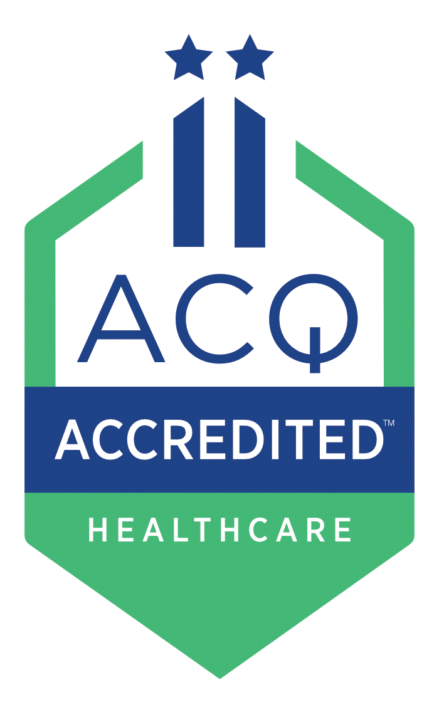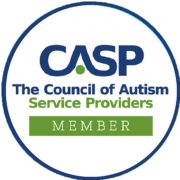Understanding Neuro-Affirming, Assent-Based ABA Therapy
We stand firm in our commitment to practicing a neuro-affirming, assent-based approach to Applied Behavior Analysis (ABA) therapy. If you’ve been with A Bridge to Achievement (ABtA) for some time, we’ve likely discussed what this means, but if you’re new to us, this may be an abstract idea. Operating with these principles is critical to us – and it’s a differentiating factor from other clinical practices that offer ABA therapy – so it’s important that we communicate these concepts.
In this article, we’ll discuss the neuro-affirmative approach, the concept of assent, and the implications of these philosophies on our engagement with autistic learners. Let’s get into it.
What is Neuro-Affirmation?
Neuro-affirmation is an approach that embraces and respects the natural variations of neurology. It recognizes neurodiverse traits as inherent and valuable aspects of a learner’s identity, rather than deficits to be corrected. A neuro-affirming approach promotes acceptance and understanding of neurological differences, such as autism, ADHD, and other neurodivergent conditions, as part of the rich tapestry of human diversity.
By focusing on unique abilities, neuro-affirmation aims to empower individuals to leverage their interests to foster development, flourish, and express their authentic selves. This approach also encourages society to adapt and become more inclusive, endorsing environments where neurodiverse individuals can thrive without being pressured to conform to neurotypical standards.
Neuro-affirming ABA therapy, then, acknowledges and respects the neurodiversity of an individual learner and – rather than attempting to change or “normalize” behaviors – it emphasizes strengths, accommodates differences, and promotes acceptance and self-advocacy.
What is Assent?
Assent is the informed, voluntary agreement to participate in a therapy or intervention, given by an individual who may not be able to provide legal consent, perhaps because of their age, cognitive development, or intellectual disability. It involves understanding the proposed activities and expressing a willingness to engage.
An assent-based ABA practice, then, prioritizes the active participation and agreement of the individual receiving therapy or intervention. It respects the learner’s autonomy by regularly checking their comfort level and willingness to continue, and making necessary adjustments based on their feedback.
Assent-based practices foster collaboration, trust, and respect, ultimately enhancing the effectiveness and ethical integrity of the intervention.
Implications of Neuro-Affirmation & Assent at ABtA
Operating a therapeutic practice grounded in the principles of neuro-affirmation and assent carries several significant implications:
-
Individualized Goals
Our neuro-affirming therapists design treatment plans that are highly personalized, tailored to the individual strengths, interests, and needs of each learner in their care. Rather than applying a one-size-fits-all approach, they target therapeutic goals are collaboratively set with input from both the learner and their family, ensuring they are meaningful and relevant. This personalization often enhances engagement and motivation, leading to better therapeutic outcomes as the focus is on what is genuinely important to the individual.
-
Holistic Development
As a neuro-affirming practice, A Bridge to Achievement is focused on the comprehensive growth of each learner, including their social, emotional, and cognitive development – not just their behavioral changes. Our aim is to improve an individual’s overall quality of life by fostering independence, self-confidence, and well-being. By investing in the development of skills that contribute to long-term success and happiness (rather than short-term behavioral compliance), therapy is more impactful and enduring.
-
Ethical Considerations
Respect for autonomy is a cornerstone at A Bridge to Achievement. Regular checks for informed assent ensure that the learner’s willingness to participate is first and foremost, with practices adjusted as needed to maintain comfort and trust. This focus on compassionate, collaborative care aims to avoid any practices that could cause distress or harm, emphasizing the welfare and dignity of the individual.
-
Learner Participation & Empowerment
At ABtA, our learners’ voices are heard, and their preferences are respected. By involving learners in the decision-making process, we empower them to take an active role in their own development which, in turn, leads to greater engagement and more meaningful progress.
Challenges of Neuro-Affirmation & Assent at ABtA
We recognize that there are some challenges to operating an assent-based, neuro-affirming practice, but we believe that the benefits of respecting neurodiversity and prioritizing autonomy and comfort outweigh the potential drawbacks.
- Time-Intensive Process: Obtaining and maintaining informed assent requires ongoing communication and adjustments, which can make therapy sessions longer and more complex.
- Training Requirements: Practitioners need specialized training to effectively implement neuro-affirming, assent-based practices, which can be resource-intensive and require continuous professional development.
- Balancing Autonomy and Goals: There can be difficulties in balancing the individual’s autonomy with therapeutic goals, especially when the individual’s immediate preferences might conflict with long-term developmental needs.
- Canceled Sessions: A learner who clearly communicates that they don’t want to participate can lead to canceling a session, which can be frustrating to some families. At ABtA, we have an assent-withdrawal protocol that tells the clinician exactly when to end sessions based on preset criteria.
- Family and Caregiver Alignment: Ensuring family members and caregivers are aligned with the neuro-affirming approach may require additional education and support.
- Variability in Outcomes: The highly individualized nature of this approach may lead to more variability in therapeutic outcomes, making it harder to predict and measure success compared to other methods.
At A Bridge to Achievement, we are steadfast in respecting neurodiversity, seeking learner assent, and fostering collaboration – not only because it creates a positive and empowering therapeutic experience, but also because we believe it’s the right thing to do. If you have questions, are interested in learning more about our practice and assent-based approaches to supporting individuals with autism, or would like to schedule an autism diagnostic assessment or request services, please connect with our team. Support starts here.








